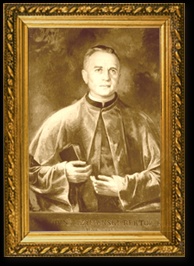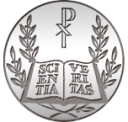About us
 The Learned Society of the John Paul II Catholic University of Lublin was founded in 1934 on the initiative of Father Antoni Szymański, then rector of Catholic University of Lublin as an academic and publishing institution, a legally separate but complementary to the University. For nearly 90 years, it has been in service of science and truth. It is one of the older institutions of its kind in Poland. At present it has more than 700 members: active members, correspondending and collaboratorating members from all scientific centres in Poland. Karol Wojtyła, later Pope John Paul II, now a saint of the Catholic Church, was a member of the Society. The Society’s activities are governed by a 13-member management board.
The Learned Society of the John Paul II Catholic University of Lublin was founded in 1934 on the initiative of Father Antoni Szymański, then rector of Catholic University of Lublin as an academic and publishing institution, a legally separate but complementary to the University. For nearly 90 years, it has been in service of science and truth. It is one of the older institutions of its kind in Poland. At present it has more than 700 members: active members, correspondending and collaboratorating members from all scientific centres in Poland. Karol Wojtyła, later Pope John Paul II, now a saint of the Catholic Church, was a member of the Society. The Society’s activities are governed by a 13-member management board.
The following are the Society’s aims, according to its Statute: “scientific activity in accordance with the profile of the Catholic University of Lublin, realised by: a) conducting, organising and supporting scientific research, b) organising academic meetings, symposia, conventions, lectures and exhibitions of various kinds, c) establishing special libraries, archives and museums, d) publishing all kinds of scientific works, popular science works, textbooks and activity reports, e) awarding research grants, announcing competitions for scientific works and awarding prizes, f) cooperating with other learned societies and research institutions, g) promoting activities for the popularisation of science, culture and national heritage, h) conducting business activity as an additional activity in the scope defined by the statutory objectives”.
The scientific work of the TN KUL (meetings, symposia, scientific conferences, publications) takes place within seven faculties of the University: theological, philosophical, historical-philological, social sciences, legal sciences, mathematical-natural sciences and legal and economic sciences. Important links in the organisational structure of TN KUL, apart from the Faculties, are the Faculty and Inter-Faculty Committees, some of which have their own publishing series. The beginnings of the current inter-faculty research institutions within the University were connected with the Society. The individual faculties of the Society publish specialist annals (available on the Society’s Open Journal System platform), reflecting the faculty structure of the University. The publication of the Annals is but one direction of the Society’s publishing activity, the other being books – publications in the field of philosophy (metaphysics, theory of cognition, logic, history of philosophy, philosophy of morality and religion, philosophy of nature and natural sciences), the humanities (Polish literature, history, classical philology, history of art, neophilology, language studies, Slavonic studies), legal sciences (law and canon law), social sciences (ecology, economics, pedagogy, psychology, social sciences, social teaching of the Church, political sciences), theology (Bible, dogmatic theology, fundamental theology, moral theology, church history, theology of spirituality, pastoral theology, ecumenical theology, liturgics, musicology).
The work of the whole institution is reported annually in Summarium Societatis Scientiarum Catholicae Universitatis Lubliniensis Ioannis Pauli II.
Since 1974, the TN KUL Management Board has awarded the Father Idzi Radziszewski Award for “outstanding scientific achievements in the spirit of Christian humanism”. Radziszewski was the founder and the first rector of the Catholic University of Lublin, so the Award is an important manifestation of the science-promoting activities of the Learned Society. It is the highest scientific distinction of the KUL academic circles, significant in the Polish world of science and culture, as well as in the life of the Polish Church.
Importantly, research projects carried out under the auspices of the Society fulfil the Society’s objective, which is scientific activity. In recent years these have been projects awarded by the Ministry of Science and Higher Education under the National Programme for the Development of the Humanities, Science Dissemination Activities, the Excellent Science Programme (support for scientific conferences and monographs) and grants awarded by the National Centre for Science in Kraków (NCN). The Society has also implemented grants from the Chancellery of the Prime Minister, the Ministry of Culture and National Heritage and the Maximilian Maria Kolbe Institute for the Development of Polish Language. To date, the Society has carried out over 200 research projects, which have brought together a large number of Society members and researchers from KUL and other national and international scientific communities.
In its nearly 90 years of activity, the Society has been guided by the motto Scientia Veritas and the motto of the Catholic University of Lublin, Deo et Patriae. It has fulfilled and continues to fulfill the goals set by the Founders. Maintaining its Catholic profile and cooperating closely with the John Paul II Catholic University of Lublin, it makes a significant contribution to Polish science. It brings together academics both from the mother university and from other centres, enabling an exchange of ideas and confrontation of views, without which the development of science is impossible. It develops and deepens the current of science based on the values of Polish culture, and also takes into account the achievements of the all-Christian culture, which has a history of over two thousand years.
Publications published by our Society are available at www.tnkul.pl/ksiegarnia/.

